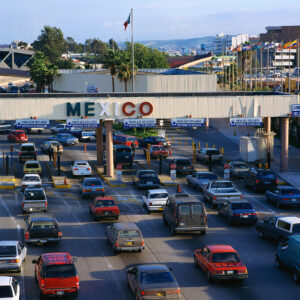 Resident aliens are common to earthly kingdoms. A resident alien is a person who resides in a nation where he is not a citizen. There are many reasons one may choose to live in a foreign country, but the most common are political and economic. More specifically, people choose to live in foreign countries that offer a level of peace or prosperity not found in their own country.
Resident aliens are common to earthly kingdoms. A resident alien is a person who resides in a nation where he is not a citizen. There are many reasons one may choose to live in a foreign country, but the most common are political and economic. More specifically, people choose to live in foreign countries that offer a level of peace or prosperity not found in their own country.
Resident aliens do not enjoy all the privileges, nor do they have all the responsibilities, of citizenship. They do not have the privilege of ruling with the king nor the obligation of defending the kingdom and giving their life for it, but they may enjoy many of the blessings found in a the foreign country.
The kingdom of God, like earthly kingdoms, contains both citizens and aliens. Jesus described the kingdom of God as a net cast into the sea that gathers fish of every kind, but it is only when the net is drawn onto the beach that the bad fish are thrown out. (Matt. 13:47-48). The kingdom of God gathers within its earthly territory both citizens and aliens. Jesus said He would gather the lawless and all stumbling blocks out of His kingdom. (Matt 13:41-43).
As I’ve suggested in other posts, these parables make no sense if one believes the kingdom of God is heaven or the Church because only believers are part of the Church and go to heaven. However, if one understands the kingdom of God exists in space and time and has a geographic presence on the earth, one can see how it is possible for non-Christians to be “in the kingdom of God” (on earth) without being part of the Church or gaining entrance into heaven.
Resident aliens enjoy only limited privileges, rather than the full privileges of citizenship, by living under the earthly authority of the kingdom of God and its laws, but those benefits do not extend beyond death. Aliens do not inherit the kingdom of God when they die. (1 Cor 6:8-11). That privilege is limited to citizens of the kingdom of God. Though aliens may be in the kingdom on earth, at death they are rooted up and thrown out. (Mathew 13:30, 49).
Resident aliens are often religious people who try to live according to the laws of the kingdom of God, but have never become a Christian, or they are sometimes people who don’t even pretend to be moral, but because they live under the authority of a citizen of the kingdom of God they fall within the territory of the kingdom. A family member who is part of a household led by a Christian is a resident alien of the kingdom of God and can enjoy the earthly benefits that flow from the kingdom of God through the Christian who exercises the delegated authority of King Jesus in the household.
The kingdom of God is always seeking new citizens. Overpopulation is not a concern in the kingdom of God. As Jesus told His disciples, “In my Father’s house there are many dwelling places.” (John 14:2). Resident aliens are the most likely candidates for citizenship, and one of the goals of the kingdom of God is to convert resident aliens into citizens. Therefore, immigration is welcomed in the kingdom of God and resident aliens are an integral part of the kingdom of God. GS

